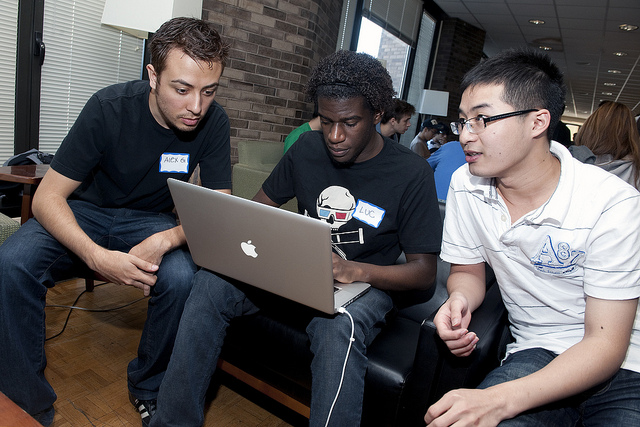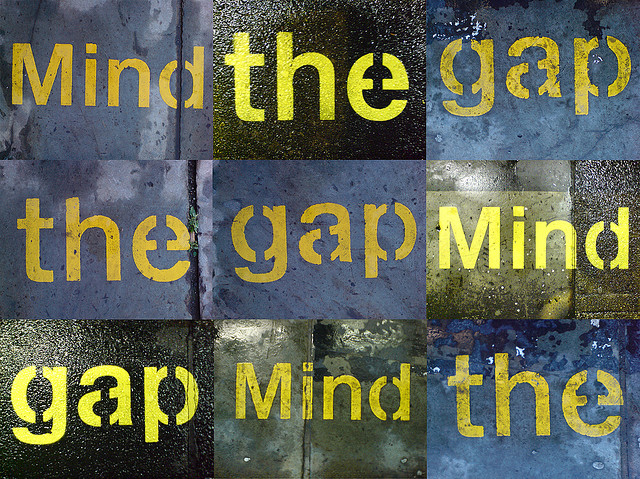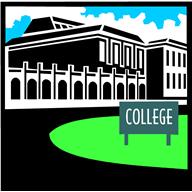Take a look at this article. It has some eye opening numbers in it concerning earnings ten years after graduating from some of the most expensive colleges and universities in the nation.
Category Archives: The Costs and Benefits of Higher Education
For Minority Students—Getting Into College Is Not The Only Challenge

Studies have shown that one of the most important aspects of success in college is quickly fitting into the college experience and establishing personal and social relationships that help students succeed. These and other articles show how hard this can be for minority students at elite universities. While these universities have increased their enrollment of minority students but have not adequately addressed the huge socio economic differences between many of the minority students and students from much more affluent families. The differences affect personal and social relationships which, intern, affect the value of each student’s college experience.
The result can be isolation and a distorted view of their college experience. In his book, David and Goliath: Underdogs, Misfits, and the Art of Battling Giants, Malcolm Gladwell tells the story of a student who chose to go to an Ivy League university rather than a flagship state university. At the end of her first year, she ended up at the bottom of her class which made her feel completely inadequate. She was so used to being first in everything she couldn’t see that she was making it academically in a very exclusive world-class group of students, regardless of her position in the class. Without the personal, social and academic relationships with instructors she needed, she decided to change majors for something easier and give up her lifelong dream of being a medical researcher. This is a loss that could have been prevented. Unfortunately, she was admitted but felt left out and could not deal with this on her own. To admit, retain and graduate more minority students, elite colleges and university must do a better job of addressing this critical need for minority students.
Achievement Gap Economics
 A recent article in the New York Times focused on achievement gaps caused by socio economic differences instead of racial differences between students in America. These achievement gaps begin to show up early – cognitive differences start to appear in children from the top and bottom socio economic sectors in America before kindergarten and only increase as they progress through school. Furthermore, the achievement gap between high and low income students has increased. Since 1970, the achievement gap on standardized test of reading has increased by almost 40% between the 10th and 90th percentile household income .
A recent article in the New York Times focused on achievement gaps caused by socio economic differences instead of racial differences between students in America. These achievement gaps begin to show up early – cognitive differences start to appear in children from the top and bottom socio economic sectors in America before kindergarten and only increase as they progress through school. Furthermore, the achievement gap between high and low income students has increased. Since 1970, the achievement gap on standardized test of reading has increased by almost 40% between the 10th and 90th percentile household income .
What this means is that there is limited upward mobility in America – more limited than in most first world countries. A child born to parents with income in the lowest bracket is ten times more likely to end up in that same lower bracket than they are to rise to the highest bracket as an adult (43 percent versus 4 percent). And, a child born to parents in the highest income bracket is five times more likely to stay there than end up there than the lowest (40 percent versus 8 percent). These results run counter to the historic vision of the United States as a land of equal opportunity.
The good news is that a college degree can make a big difference. Without a college degree a child born into a family in the lowest income bracket has a 45 percent chance of staying there forever and only a 5 percent chance of moving up into the top bracket. Children born into the lowest income bracket who do earn a college degree have only a 16 percent chance of staying there and a 19 percent chance of moving up into the top bracket.
Upward mobility means more than just money. Parents in higher socioeconomic brackets invest not only more money in their children, but more time as well. On average, mothers with a college degree spend 4.5 more hours each week engaging with their children than mothers with only a high school diploma or less. This means that, among other things, by age three, children of parents who are professionals have vocabularies that are 50 percent larger than those of children from working-class families, and 100 percent larger than those of children whose families receive welfare, disparities that some researchers ascribe to differences in how much parents engage and speak with their children. By the time they are three, children born to parents who are professionals have heard about 30 million more words than children born to parents who receive welfare. Additional language skills put child at a distinct advantage when they start school and will probably follow them throughout their educational career.
All of this information makes getting a college degree even more important for all students – especially disadvantaged students. It’s the best investment they can make with a higher return than any other way to invest the cost of a college education. It doesn’t just mean more money, it can mean changing the path taken in life. If you’re in high school now, do the best you can and do everything you can to get a college degree. If you are in college, stay there until you’re finished. Getting that degree can be a life changing experience for you and for all the stakeholders in your life.
WHEN IT COMES TO COLLEGE – CAVEAT EMPTOR

A recent article on NBCNews.com related the story of a young woman and her start-stop-start again academic career. Over the course of a decade, she went to three colleges and into debt and, never managed to earn her undergraduate degree. This once upon a time scholar is now in what she considers a “stable communications job” and doubts she will ever go back to college.
Whether she knows it or not, this young lady’s future is anything but stable. I’ll tell you more about that later so we can address the problem of spending the precious time and money it takes to earn a degree and ending up without one. If this young woman, along with the stakeholders in her life, had researched college and not just applied, accepted and attended – then her academic career might have turned out to be very, very different.
Every student, hopefully with the help of advisors, family and other stakeholders, must gather as much intelligence on the academic institutions they are considering and how that college specifically relates to what they want to achieve by going to college. You are making an investment of time and money that can set the course for the rest of your life – it deserves your utmost consideration.
The above statement is in bold because the information you gather on a college you want to attend is critical to your academic success. It does not matter if you’re thinking Ivy League or Community College, this assessment may be the difference between leaving college with or without a degree. Below is a list to help you start gathering the information you’ll need about yourself and the schools you’re considering in order to find the right fit for you:
- Have you researched the college to determine if potential degree offerings, the faculty (is this a teaching school or a research school), campus (small, medium or large), culture/demographics, location (city, suburban, remote), or even the climate suite you.
- Many students during the course of their college career, change their majors. Is there more than one academic offering that you’d be interested in at this school? Is school, or its graduates, renowned for these majors?
- Have you visited or talked to the colleges and universities you’re considering? Look Books are advertising, designed to make schools look their absolute best. You’ll learn what the real deal is with an in-person test drive of the institution.
- Have you mapped out the financial plan for all four years including tuition & fees, books, room & board, recreation, transportation and contingencies?
- Do you know how people who earned the degree you’re considering faired in the job or graduate school market after graduation?
- If you are attending a Community College, is there an articulation agreement in place that will ensure your admission as an upperclassman at a college or university you want to attend?
- Are you ready to go to college? Be honest. A semester or year delay if far better than an expensive academic disaster.
- Talk to someone who has attended or graduated from the college. Ask them to tell you about their experience. Does it sound similar to what you’re anticipating for yourself?
- Make sure your college choice is your choice; don’t let friends talk you into going to a college to have the experience they want. Stay focused on what you want out of college.
This list is just to get you started. There are many, many questions you should ask. You are assessing the school just like they are assessing you. If you go in with any other attitude you’re going to make mistakes like the young lady I described earlier. Ask your guidance counselor for sources and resources and make your own checklist to assess the college that’s best for you when you visit college websites and make campus visits.
Caveat Emptor – let the buyer beware – there is too much at risk to leave anything to chance.
I mentioned in the first paragraph that the young woman who prompted me to write this post, may seem stable today but will probably face even more challenges in the future. In my next post, I’ll share with you why without a college degree, stable jobs can get very shaky.
College Is An Entrepreneurial Venture

Molly Mahoney Matthews and Dr. Granville M. Sawyer were recent guests for two shows on CBS Radio’s Biz Talk With Josh. Host Joshua I. Smith interviewed Matthews and Sawyer and the topic was Bookends, an innovative approach to college as an entrepreneurial venture that prepares college students to graduate in four years with business and entrepreneurial skills. Bookends pairs the higher education experience of Dr. Granville M. Sawyer, Jr. with the entrepreneurial/business management success of Molly Mahoney Matthews using the information and insight from Molly Matthews’ book, Unsinkable: Find A Job, Create A Career, Build A Business and Dr. Granville Sawyer’s book College in Four Years: Making Every Semester Count.
Click the player to listen to an excerpt from the show:
Interested in learning more about Bookends for your organization or institution? Complete the contact form below.
Error: Contact form not found.